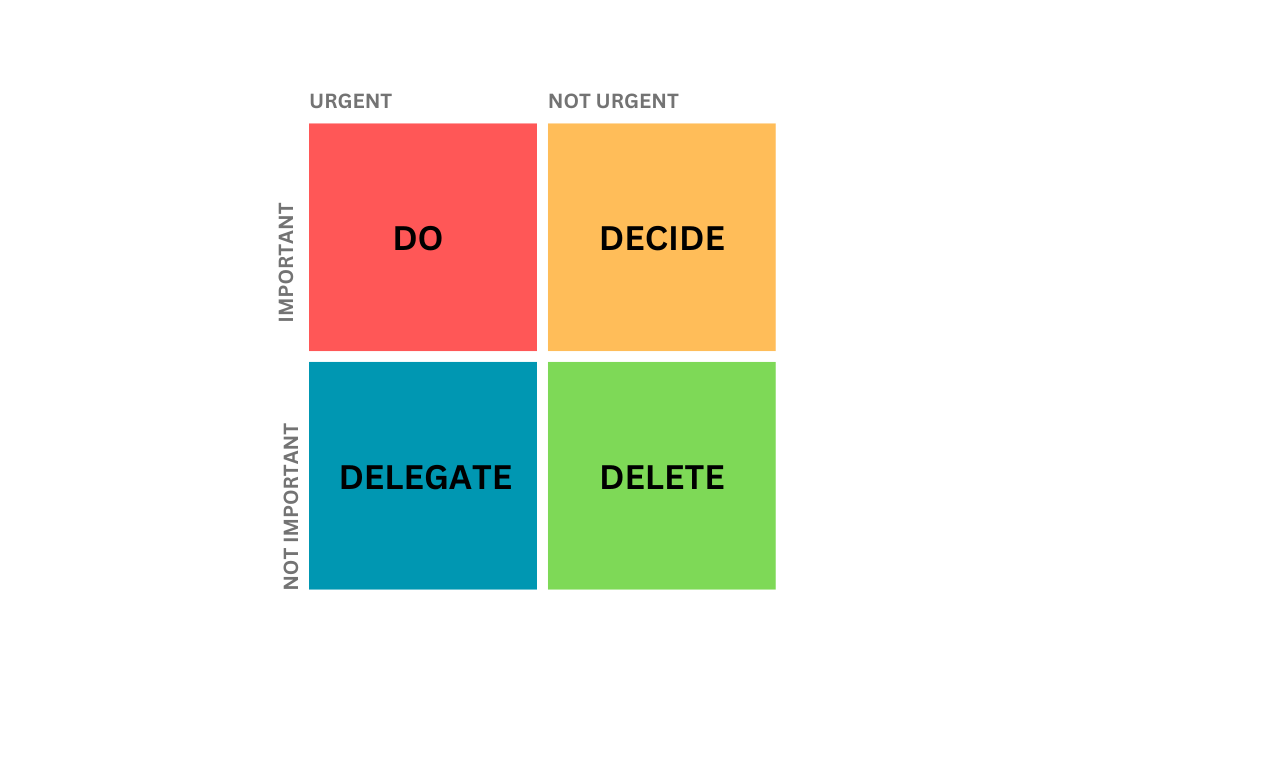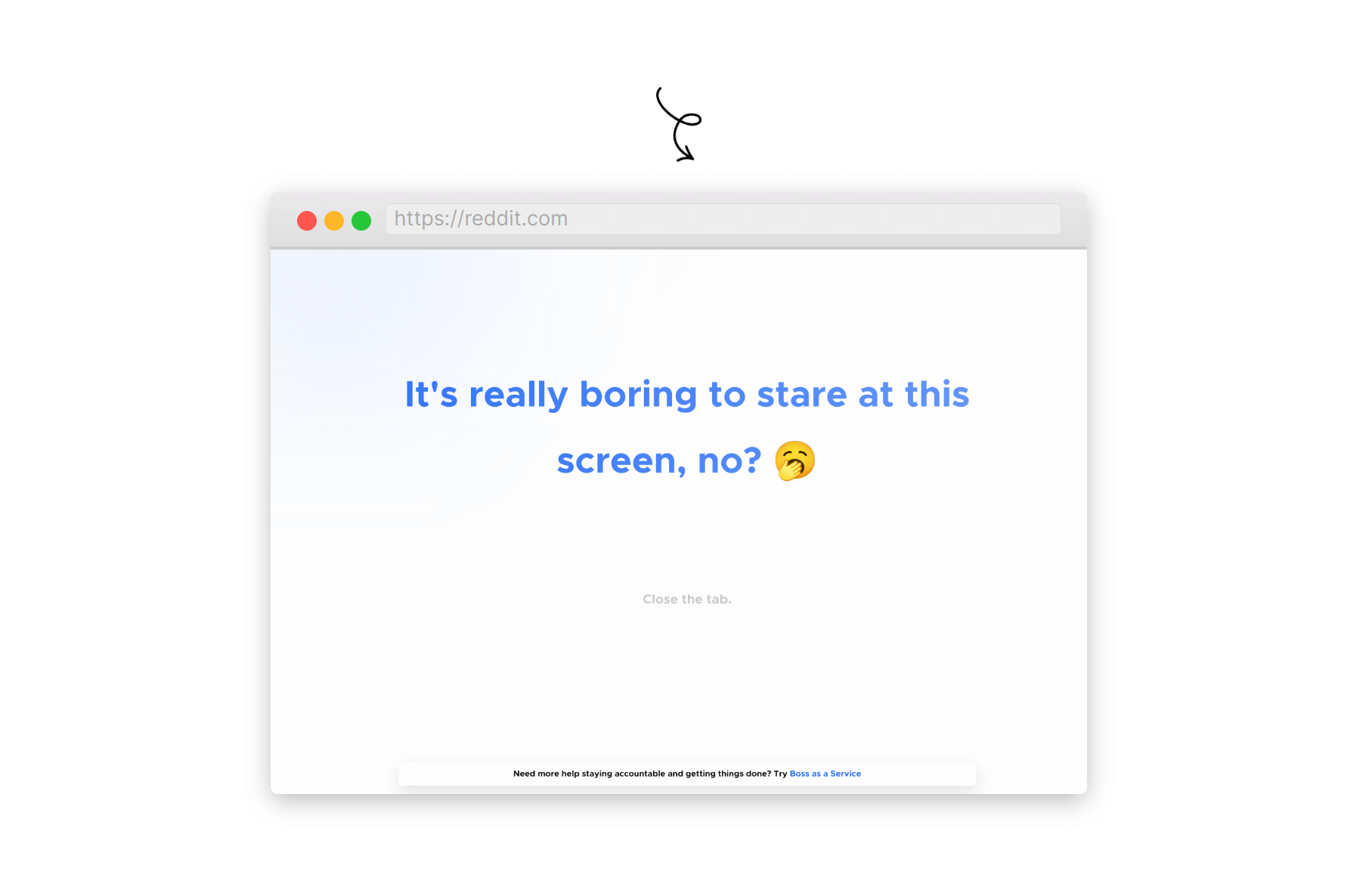How To Stop Procrastinating, Once and For All
How to stop putting off important things - the theory, the practice and practical tips
Have you ever had those days when it seems like you've suddenly got a ton of work to finish right at 6 pm? (How did that deadline sneak up so insidiously on you?) And now, this means you'll have to stay back late at work, cancel your plans for the evening, or stay up too late at night.
I hate those days, and I'm sure you do too. While it seems like the universe conspires against us this way – and believe me, I am sometimes completely convinced this is, in fact, the way it happens – the sometimes-unpalatable truth is, most of the time, we only have ourselves to blame.
Let's face it. The deadline didn't sneak up on us, it was there all the time, we just didn't notice it. Or we told ourselves optimistically that there's plenty of time to do it later. The exam didn't manifest suddenly next week, we knew it was coming up but decided there was ample time to catch up on schoolwork later.
It's all procrastination.
It beleaguers us at every step.
And here's all you need to know, to overcome procrastination, once and for all.

What is procrastination?
Procrastination, derived from the Latin words prō+crāstinus (which means "of tomorrow") is a problem of creating unnecessary delay in doing important tasks. It's following the philosophy of "Why do something today when you can put it off till tomorrow?"
Procrastination is a common phenomenon across demographic groups – children, young adults, and working professionals. A 2014 study, for example, says 87% of 1,300 surveyed high school and college students in the US were "self-proclaimed procrastinators", preferring to do other activities like go on social media or watch TV instead of schoolwork. And similarly, in a survey of more than 2,000 people in the workforce by productivity and wealth-building writer Darius Foroux , 88% of participants said they procrastinated at least one hour a day.
So it's safe to assume that the procrastination problem is widespread. (Phew, it's just not us!)
Of course, we also intuitively know this, based on how many of us promised ourselves to go to the gym today, and didn't.
But what causes it? Why do people procrastinate?

Causes of Procrastination
Difficulties with organization
If you're someone who finds it difficult to make a to-do list and prioritize what to do and when to do it, it's just ... easier to not do it. You just have too much to do and you're frantically figuring out where to start, so your brain chooses to simply not. At all.
Low self-efficacy
People who are unsure of their ability to get something done often put things off for as long as possible. For example, if you want to get good grades on a test but have already decided you're not good at the subject, you simply choose not to study until the last minute.
Low conscientiousness
This one's for all the non-planners. Basically, sometimes people find it difficult to get started on an important or long-term goal because they haven't prepared themselves to do it or are easily distracted by other things to get to it.
Impulsiveness
Do you feel like you lack self-control? Do you find yourself constantly craving a new source of mental stimulation, wondering what's new on Instagram or Twitter? Impulsivity can be dangerous at times, especially if you choose to keep prioritizing low-value or unproductive tasks in lieu of what you should really be doing.
Future fear
When you set a task or goal for yourself, you've already thought of the outcome and consequences that its completion will bring (If you finish the report, you'll have to submit it to the boss and open yourself to positive or negative consequences). If the future scenario doesn't sound appealing, you're much more likely to delay it as long as possible in the present moment.
Signs of something bigger
Not to cause alarm, but chronic procrastination often has been linked to certain bigger, underlying issues related to mental health and well-being, such as ADHD or anxiety. Don't make any conclusions without medical advice on this though – if you face chronic procrastination, it's best to consult a professional!
Procrastination is not the same as laziness
Sometimes when you catch yourself procrastinating, do you think: "I'm just too lazy to do it?"
It's a common enough phrase that the two can be considered synonyms.... almost. But in reality, there is one big difference. Procrastination is an active choice, in which you are consciously choosing to put off a specific thing or set of things you have to do. Laziness, on the other hand, is more associated with apathy or unwillingness to do anything of importance, not necessarily just something in particular.
Procrastination is actually more closely related to akrasia, a word used to denote a lack of self-control or discipline -- basically a state of not being able to follow through on what you set out to do. There is interesting science behind why akrasia occurs: when we make plans, we're expecting our future selves to do them. And when it comes to acting on them (in the future from the past, if you follow my drift) we suddenly decide that our present self would rather push the plan forward or do something else in its stead. The same thing can be said about procrastination -- we always want our future self to be held to it, not our present versions.

So now we know what procrastination is and that it's is common enough issue. But that doesn't mean it doesn't come with some impact:
Effects of Procrastination
The Ugh Field
The more you put off a certain task though, the more you can't bear the thought of getting to it. Pretty soon, you create what becomes an "ugh field" around it. (Call the plumber? Go to the gym? Ugh, no). But the bigger the ugh field becomes, the more harm you're causing to yourself. For one, you'll never be able to go about your day at peace with that one task hanging over your head. The ugh field becomes more concentrated, and bigger, to the point that even thinking about the task for a moment can trigger a physical repulsion. Result? You start avoiding even thinking about it. And second, it can potentially spiral into you avoiding a lot of things at once (From I-do-not-want-to-call-the-plumber to I do not want to call anyone, ever!).
Lack of Productivity
If you're procrastinating on something by taking up smaller, impulsive things to do, you're stopping yourself from being productive. So no matter how many small miscellaneous things you get done, you're actually not making any progress where it's needed.
Health issues
The longer you put off something, the worse you feel about it. This leads to a spiral of beating yourself up, depression, and a host of mental and physical health effects (more so if you're actually procrastinating on getting in better shape!).
So now you know no matter what small task it is you're procrastinating on, you can’t give in to it, or you’ll fall into a trap of never finding the motivation to start the work and become disillusioned.
What you need to do is find the procrastination-action line. Picture your journey to the end of the task as a graph. The more time you take to get to the task (i.e., the more you procrastinate), the higher your metaphorical pain level is. At one point, the pain will peak, and that's when you start moving and take action. Then as the action continues, the pain recedes. So the aim should be to try and find the point at which you started addressing procrastination.
How to Start Overcoming Procrastination
Overcoming procrastination is a marathon, not a sprint. And don't let the buzzwords of time management scare you away either! It doesn't happen overnight, but small, consistent progress every day, changing your mindset bit by bit, will help you avoid procrastination before you know it!
Recognize that you're doing it, and why.
It's easy to not think about something when you're aiming to, well, not do it. But practise some mindful thinking--what are you putting off right now? Are you waiting for the right time, or is that now and you just don't want to get to it. Why? What's stopping you? Ask these questions any time you find yourself sitting idly by.
Forgive yourself
Self-compassion is important! You can't beat yourself up for being human. Be kind to yourself and reinforce the idea that you can and will do better moving forward.
Make a commitment
You have to promise to get the task done, either to yourself or to others. Once your word and credibility is attached to it, you're much more likely to approach it with seriousness. When you make the commitment, also make sure your goal is formulated so that you have the best chance of success – the SMART framework is a good start!
Structure your goals to set yourself up for success
Here's how you go about it:
Break tasks into manageable steps, and set small goals. If you have a large task at hand, break it down into measurable steps and put it all down in a to-do list. If you're not sure how to do this, try our Crunch, our Task initation tool! Getting easier tasks done is a great way to build up confidence, or what the Procrastination Equation calls Expectancy.
Learn to prioritize
Have you heard of the Eisenhower Matrix? It's a productivity tool to help you arrange your tasks in order of urgency and importance, to help you decide what you should prioritize, useful in so many fields, whether you're running or managing a business or polishing up your thesis. There are 4 boxes - urgent and important, urgent but not important, important but not urgent, and neither urgent nor important.
Anything that is both not important, and not urgent? Consider if it's safe to deem them unimportant tasks, and delete them altogether. It's so freeing!

Another popular prioritization method is the Ivy Lee Method, for which the industrialist Ivy Ledbetter Lee paid the equivalent of $400,000. At the end of each day, identify six tasks -- and no more than six tasks -- for tomorrow. Arrange them in the order of true importance. Remember not to focus on the urgent at the expense of the important! When you get started the next day, do the work in that order. Finish the first task before moving on to the second. This is the important thing -- do not jump to the next task before finishing the first. And at the end of the day, if any tasks on your list remain undone, move them to the next day, in another similar list.
Reduce your decisions
Decision fatigue is real. We waste a lot of energy thinking about decisions ahead. And in the process, get completely paralyzed and increase procrastination. Instead, organize your tasks in a way that enables you to think less when approaching them and just get straight to it. The best way to do it is to plan the whole day the previous night. Take a few minutes to quickly map out what the next day looks like. Set metrics-decide whether you're going to measure progress through outcomes or time. It helps you stay on track.
Eat the frog
When faced with something unpleasant, do it early and quickly, and get it out of your way, preferably first thing in the morning. And see how smoothly, peacefully, the rest of the day goes, as you bask in the warm, satisfying glow of having got the difficult thing done first!
Plan for obstacles
Make up some scenarios in your head: "If I run into problems with this, here's how I will solve them". These are known as implementation instructions, and they work on if-why rules (If X, then Y) to help you adopt goal-oriented behavior for such tasks and practical ways to overcome hurdles or avoid temptations. Good implementation instructions are those that come naturally and require minimal deliberation, increasing the chances of you sticking to the plan.
Manage your energy
Figure out when you feel and act the most productive, and plan your important work for that time. Do you feel fresh and ready to take on the world early in the morning? Schedule today's Big Task, or the most important thing for the day for the morning then. Even better, use this valuable time to get some mastery-related work done. Anything creative, anything that requires your full focus is fair game! Or you can use this time to get your non-negotiable daily habits in. If you're prone to avoiding that workout because you get tired in the evenings, try to schedule it for the mornings, when energy levels are high!
Or are you a night owl? Do you do your best work in the quiet, peaceful cool of the night? That's when you want to tackle the difficult, must-do task of the day then!
Remember that everything you do has an energy consequence. Make sure to play to your energy and bodily rhythms, not against them!
Increase motivation
There are a bunch of practical ways you can do this, some simple examples of the most popular ones below:
- Rewards/incentives. Of course, the long term benefits are what truly matter. Putting in your 2 hours of work today will get you the degree, the promotion, that you've been working towards. But don't forget the short term -- creating a system of small rewards for yourself for small wins is a wonderful way of keeping motivation up. If you go to sleep early or get up on time in the morning, you can get something yummy for breakfast. Or, if you're able to write 50 pages by Friday, you can go out and have fun on the weekend. Having something to look forward to at the end of the work really make you want to go faster!
- Create success spirals. If you accomplish tasks one after another in quick succession, you create a streak of wins that really boost you up and make you want to keep adding.
- Visualize your future. Think of your successful self, maybe draw a picture of it and tape it to your vision board! Seeing it will make you want it more.
- Gamify your work. The top procrastination method is playing games, right? To-do apps like Habitica let you set up your goals as "quests" that you complete to level up and unlock new levels. You'll have to keep working if you want to come first!
- Hype yourself. Give yourself pep talks ever so often, with reminders of everything you've accomplished and how much you've grown in the process!
Emotional Regulation.
The secret of how to stop procrastinating? So much of it is all about emotional regulation. Procrastination is something that triggers a lot of negative feelings in our bodies and brains. Guilt, Fear, Shame, Aversion. All mixed up in one toxic cocktail. Learning to isolate, identify, and deal with each of these negative emotions is critical!
Doing the work
Everything before the work starts is done now, but that doesn't mean procrastination can't creep in. Here's how to stop it from doing so:
- Focus your attention. Develop tunnel vision and only look at what's in front of you.
- Use time management techniques. Set up a pomodoro timer for 25 minutes of focused work and a 5-minute break (You know going for a long break is what got you into this mess!)
- Aim for progress, not perfection. Give yourself permission to make mistakes and for the first few steps to really suck. Once you've gotten them done, getting them good and perfect always happens later. Try to develop self compassion to not hold yourself to the standard of "perfect" every time. Sometimes, done is better than perfect!
- Avoid multitasking. Multitasking is the bane of productivity. Focus means one thing at a time, no matter how small it is or how much time it takes.
- Put yourself in the right environment. Designing your ideal work environment helps more than you think. Find a place that is comfortable, but not so much that you're ready to stretch out and fall asleep! Also, make sure your workspace is motivating but not distracting, and that you're surrounded by people that inspire more productivity than banter. Remove all sources of possible distraction -- keep away your phone and other electronic devices, preferably in another room, before you start work. The best part? Taking the time to design a better environment is a gift that keeps giving -- for the one time effort you take to create a calm and quiet place to work, you get to enjoy the benefits for a long time to come!
- Batch up small tasks. Are there a bunch of small tasks languishing on your list, that you just haven't got to? If they're all small things that take a few minutes each, batch them up, set a timer and power through them!
- Use a commitment device to bind yourself. Sometimes, will power is not enough. Make sure you follow through by self-binding your akratic future self.
Take care of your health
As you get the work done, don't forget that your body needs rest. If you're not well hydrated, fed, and have gotten enough sleep, stress levels and distractions from within will creep up and derail your focus.
If you've read till here and want to keep going, that means you've already started on some work but are procrastinating on its continuation. Here's what you do in this case:
Anti-procrastination tips for important tasks - 5 Practical Tips to Make Sure to Get It Done
Set up 15-minute bursts of productivity
Neither too long a work hour, nor too long to take a break. Work for 15-minutes, pause to stretch for just a few minutes, and get back on it. This makes sure your eyes aren't glazing over!
1, 2, 3, Go-Don't keep reading, get to work!
Set up tools to eliminate distractions and block distraction apps/websites
Hope we're not on this list! But these tools can be useful to make you stop procrastinating or wasting time. Check our tool, Dopanope, here!

Play instrumental music
It can be calming or energizing, but without lyrics. The idea is to keep you motivated but not getting distracted with the words!
Time box your day
Divide your day into productive blocks and stick to the work you've scheduled (you can even schedule time to get distracted!) This helps you avoid unrealistic expectations -- when you have both the things you need to do, and the time available clearly set out in front of you, it's easier to not over-commit and fall victim to the Planning Fallacy! Setting reasonable goals and achieving them is also a great way to amp up your motivation.
Find someone to hold you accountable
Reinforcement is what helps a lot of people stay focused and on track, whether it's positive (praise and rewards) or negative (penalties!). Working with someone can be very effective. And speaking of accountability partners, why not Boss as a Service, where accountability coaching with a twist is our whole deal?
For popular goals such as fitness, there might be dedicated accountability apps out there to support you! For example, find your next favorite workout accountability app!
How BaaS Helps You Overcome Procrastination
Sometimes you need a Boss to get things done. Fret not, we're here! At Boss as a Service, we give you a real Boss – a real person to keep you accountable and make sure you're not just setting goals, but also fulfilling them!
We will not stop asking you or nagging you till the work is done, so there's no way you can put it off for long!
And in case you are anyway, talk to us to figure out why you're procrastinating and how you can overcome it - we'll even offer solutions tailored specifically to you!
And for extra reinforcement, we'll make you put your money where your mouth is with help from our friends at Beeminder -- and we'll make sure you're not cheating!
Final thoughts
Procrastination is a common but disruptive bad habit. But the good news is, it's not by any means impossible to stop procrastinating! All it requires is a plan, a partner, and some motivation! Let's beat procrastination together!